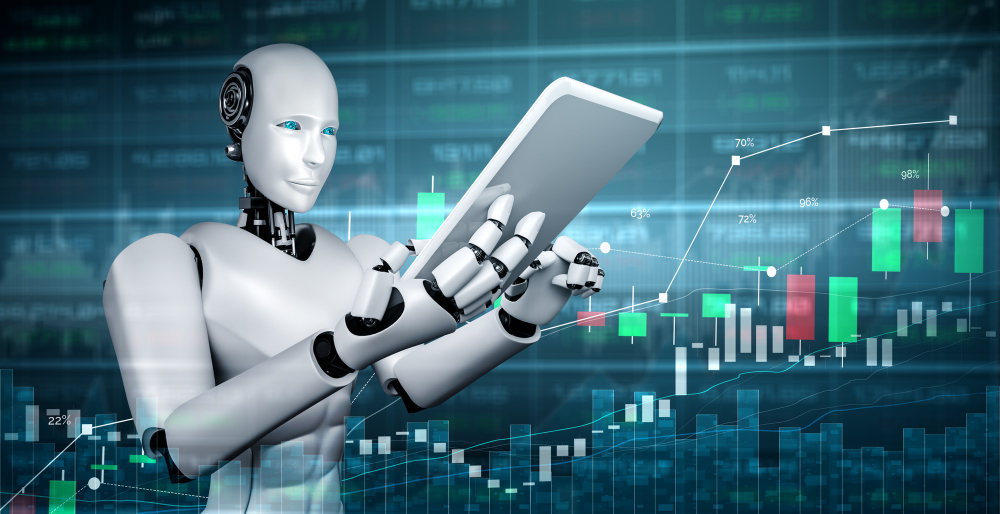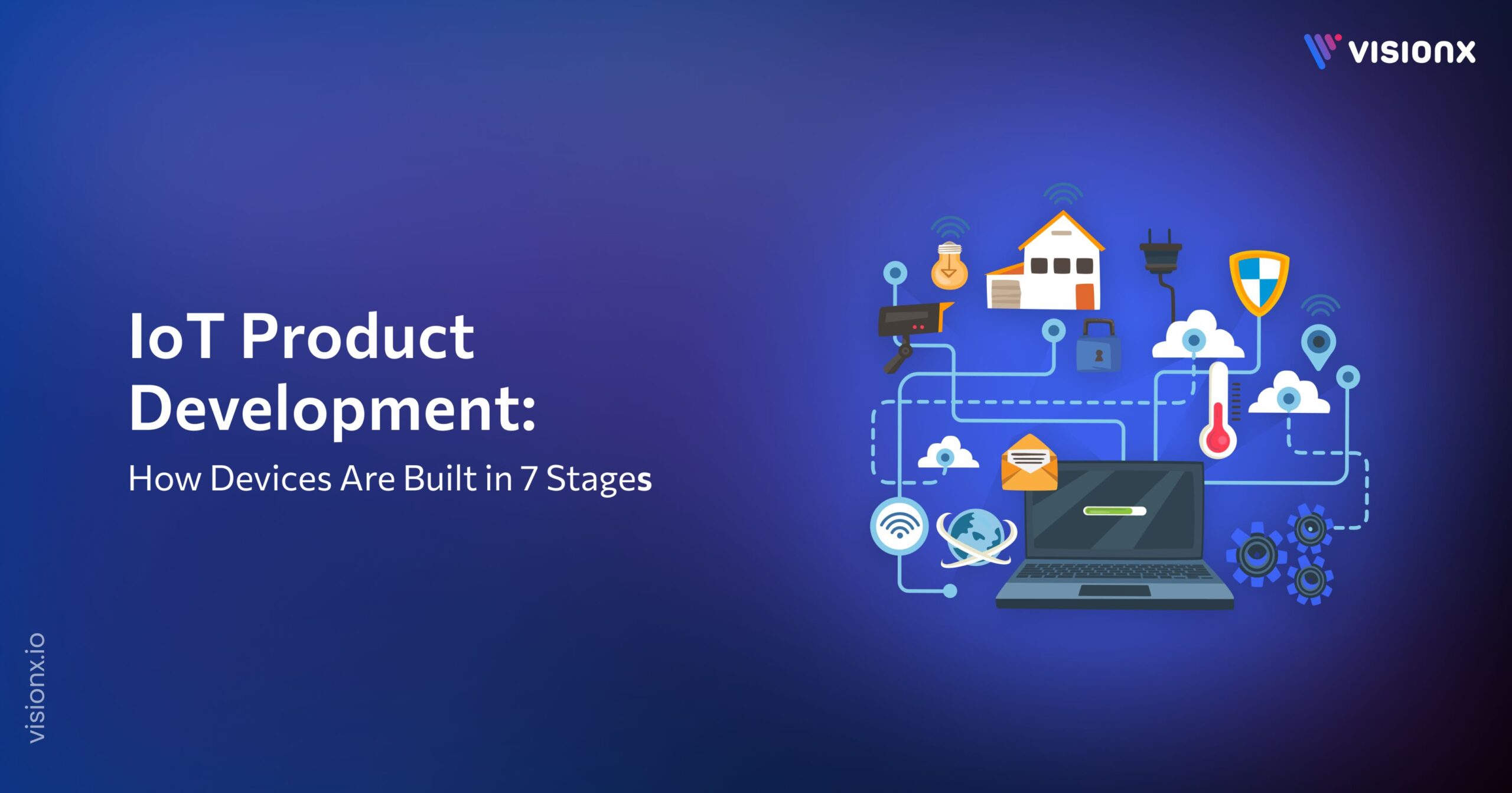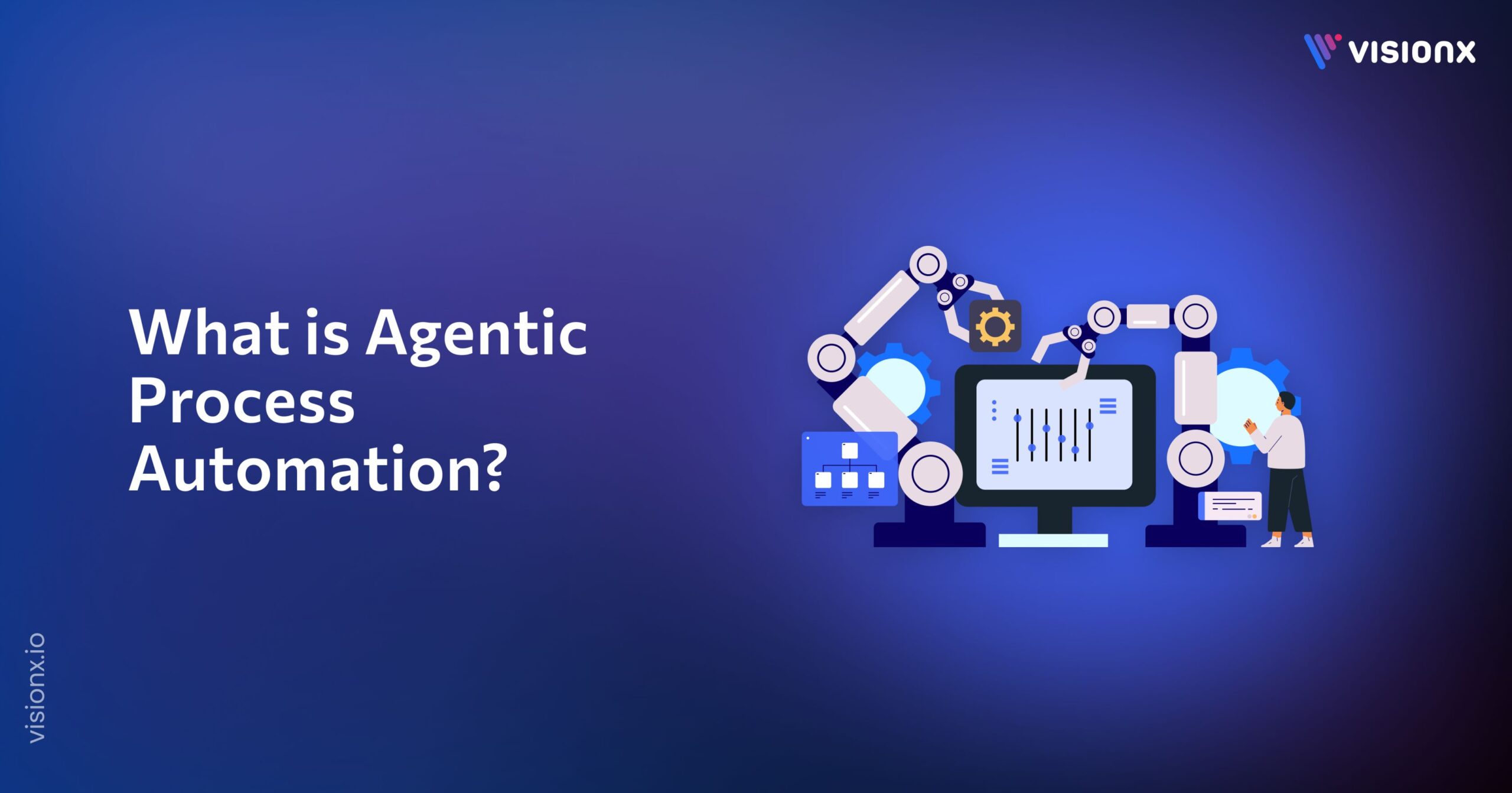The impact of AI in accounting is undeniable. It is transforming the way accounting firms operate. Gone are the days of tedious manual tasks, as AI now has the capability to efficiently analyze large volumes of data and automate repetitive tasks in a fraction of the time.
AI brings a new future to accounting. It helps boost efficiency, cut errors, and let accountants focus on tasks with more value. As a result, accounting firms now use AI for tasks like data review, payroll, reports, forecasts, fraud detection, and task automation.
It redefines the work of an accountant in managing financial data, process optimization, and insights delivery by automating routine chores and finding patterns. The market for generative AI in finance will increase enormously from 1.09 billion U.S. dollars in 2023 to more than 12 billion U.S. dollars by 2033, which speaks to the growing significance of AI technologies for the sector.
This blog will provide a thorough analysis of AI in accounting, its applications, benefits, and challenges, as well as the trends shaping the profession’s future.
What is Artificial Intelligence in Accounting?
Artificial intelligence in accounting uses machine learning and natural language processing to automate repetitive tasks, which frees up accountants to concentrate on strategic accounting and higher-level decision-making, resulting in enhanced efficiency and accuracy. AI is instrumental in tasks such as data entry, transaction review, audit execution, forecast creation, and other core activities.
The use of AI helps identify fraud compliance risks more appropriately. This makes overall financial security for businesses more effective. With tools like AI accounting software and agentic AI, accounting firms can improve their productivity, accuracy, and speed to make well-informed decisions.
How to Use AI in Accounting?
Artificial intelligence in accounting can be used to streamline accounting operations, raise accuracy, and provide insights based on data. The following are some of the significant applications of AI in accountancy:
1. Automation of Routine Tasks
Tools powered by accounting AI can automatically handle routine tasks like data entry automation, invoicing, payroll, and expense categorization. This type of accounting automation will free accountants’ time so they can focus more on strategic functions while keeping speed and eliminating human errors.
2. Bookkeeping and Payroll
With AI accounting software, firms now handle payroll, invoice checks, and expense reports with greater speed and accuracy. This reduces errors and helps teams focus on review, planning, and client needs. Bookkeeping automation also improves trust in records and frees up time for higher-value tasks.
3. Data Analysis and Financial Reporting
AI in accounting and finance is able to detect and predict risks embedded in large volumes of financial information by searching for trends, patterns, and anomalies within the information that would otherwise remain inconspicuous. This includes tasks such as detecting fraud in financial records, which further strengthens the role of AI to show hidden risks.
Data analysis strengthens financial results, forecasts, and risk management in more efficient and reasonable ways.
4. Fraud Detection and Compliance Monitoring
AI agents in accounting can detect fraud and anomalies by analyzing transaction patterns and marking suspicious activities. This ability, in turn, also stands for compliance in ensuring that financial practices are aligned according to legal and regulatory norms.
5. Better Financial Forecasting and Budgeting
With the help of AI, historical data of past performance can be used in conjunction with some machine learning models to foresee the future performance of any organization. This helps in better budgeting and more precise estimates of growth opportunities for any business.
AI’s forecasting capabilities can help with projected revenues, expense management, and cash-on-cash forecasting.
6. AI-Powered Customer Support with Chatbots
AI accounting systems now include smart chatbots that can be used to address client inquiries, give billing-related information, help with frequently asked questions, improve client communication, and reduce response time.
7. Automated Auditing and Reconciliation
AI tools help automate auditing by streamlining account reconciliations and marking the differences to be further investigated. It makes audits highly efficient and accurate, making them easier in terms of regulatory compliance.
Examples of Artificial Intelligence in Accounting
Some of the prominent examples of AI in accounting are Xero and QuickBooks, which work on AI features that automate bookkeeping operations. Therefore, these tools are capable of classifying expenses, generating financial reports for a given period, or sending reminders to clients regarding unpaid invoices.
An industry report found that 73% of accounting firms now rely on some form of AI tools to automate routine tasks and support financial operations. This shows how widespread and essential AI in accounting has become across the sector.
Benefits of AI in Accounting
There are many benefits that come from the use of artificial intelligence in accounting. These reflect the rise of AI in the accounting market and the progression toward AI-powered tools that support both accuracy and speed across financial tasks.
Enhanced Efficiency
It increases productivity because routine work is automated; thus, accountants are free to engage in higher-level strategic accounting, increasing productivity. AI in accounting helps teams move with purpose and avoid wasted effort.
Greater Accuracy
AI accounting reduces the level of human error, resulting in more precise reporting and examination of finances. Tools based on machine learning also assist with fraud detection, which gives firms an edge in safety and control.
Reduced Costs
The firm is able to cut down its labor costs through process streamlining and, as a result, improves the general financial performance of the company. The use of AI accounting software also supports leaner and focused operations.
Better Judgement
Generative AI solutions in accounting help reveal trends, outliers, and key data points that lead to smart decisions. With deeper views into past results, firms respond with speed and gain more trust in their direction. AI allows more profound insight into data, enabling firms to make more informed decisions on financial matters.
Focus on Higher-Value Activities
With AI tools in place, teams move away from task repetition and turn to strategy, planning, and client support. This new model supports human and machine collaboration, where people guide the work and tools provide the edge. The role of AI in accounting is not to replace jobs, but to raise the value of human input.
Challenges of Implementing AI in Accounting
While the benefits of AI in accounting are clear, several challenges slow down adoption across the industry. These issues affect both large firms and smaller practices as they seek to effectively utilize AI for accounting purposes.
- Integration Issues: In simple words, the process of integrating AI solutions with an accounting system is complicated and labor-intensive. Without the right setup, AI adoption may slow down or fail.
- Data Privacy: There is a risk associated with sensitive financial data when handling methods are employed. Weak safeguards may lead to leaks or breaches. To prevent risk, strong compliance rules and system controls must remain in place.
- Skill Gaps: There may be an emergent skills gap in accountancy because accountants must attain more education to use the available AI tools. Without the right skills, teams may not use the full value of AI.
- Resistance to change: Some professionals will fear that the machines will replace them and, therefore, are hesitant to use AI technologies, and some will fear not knowing new systems.
Will AI Replace Accountants?
While AI will likely automate most routine tasks currently performed by accountants, it is not going to replace accountants. Rather, AI’s role is to change and move from manual tasks to strategic planning and advisory services. Artificial intelligence replacing jobs is a common fear, but AI serves more as a tool than a threat.
The most effective firms now rely on human and machine collaboration, where accountants lead with insight and AI supports with speed and scale. In an AI-driven landscape, accountants must evolve their data analysis, technology management, and strategic thinking skills to stay relevant.
Here’s why AI cannot replace accountants’ jobs.
1. AI Lacks Human Judgment and Ethics
Accounting AI tools follow patterns and rules, but they cannot apply ethics, context, or moral reasoning. Complex tax advice, fraud cases, or business strategies require human insight, not just data. Accountants remain critical for roles that require trust and experience.
2. AI Works Best with Human Guidance
AI-powered tools deliver results, but without clear human input, their output may lack value. The true power of AI in accounting appears when people set goals, review results, and guide the system. This defines the future of the accounting profession.
Which Big 4 Accounting Firms Are Using AI?
The Big Four accounting firms that are using AI in their operations to develop their services, improve their efficiency, and bring more depth to their customers are;
- Deloitte uses AI for risk assessment and predictive analysis to improve audit quality.
- PwC uses AI for data analytics and process automation.
- EY uses AI to detect fraud and provide compliance solutions.
- KPMG uses AI for its auditing processes to increase the efficiency and accuracy of its audits.
Current Trends in AI and Accounting
The following are some significant trends influencing the field today:
1. Increased Adoption of Cloud-Based AI Solutions
CPAs are shifting to cloud-based platforms that support AI accounting in analyzing and automating advanced data. These enable real-time access to financial data, streamlined AI workflows, and smoother collaboration across teams. Cloud-based AI solutions are also scalable, meaning that firms can more easily deal with large volumes of data without increasing infrastructure costs.
2. Cybersecurity Focus
Accounting firms solely depend on AI to handle sensitive data. Therefore, cybersecurity is not left out. AI-based cybersecurity tools will detect unusual activities, prevent data breaches, and ensure data compliance with privacy regulations. This becomes a prominent aspect since firms are required to protect financial information from more complex cyber threats.
3. Blockchain Technology Integration
AI and blockchain today present a kind of fast-tracked progression in making accounting more transparent, secure, and accurate. Blockchain technology itself offers an immutable ledger, while AI in accounting processes information within this ledger to offer credible insights and deter fraud. This is highly used for auditing and regulatory purposes, as it offers a safe and traceable financial record.
4. Automated Compliance and Reporting
As regulatory requirements increase, AI tools help automate compliance monitoring and reporting processes. Such tools may automatically detect compliance risks and tag discrepancies along with reports generated, thereby enabling the facilitation of compliance with complicated regulatory standards without having to be highly manual and overseen.
5. Improved Communication with Clients through AI Chatbots
AI-powered chatbots also assist in client communication by addressing FAQs, reminding clients about outstanding invoices, and updating the status of their accounts. Such time-free services with clients also help develop customer experience and spare valuable accountants’ time for value-added work. This reflects the value of AI for accounting firms.
How to Integrate AI into Your Accounting Workflows
You can integrate AI into your daily accounting workflows by focusing on simple, high-impact steps. These methods will help you improve accuracy, speed, and decision-making across your firm.
- Use AI tools for data entry and expense checks
Let AI accounting software record transactions, sort receipts, and handle basic entries. This reduces mistakes and saves time.
- Switch to AI for payroll and invoice tasks
Rely on accounting AI to process payroll, track invoices, and confirm totals with speed and accuracy.
- Apply AI for fraud alerts and risk checks
Detect unusual activity early with tools that flag threats. This adds a layer of safety to your financial process.
- Run reports and forecasts with AI support
Use past results to guide your next steps. AI-powered tools help you track growth, cash flow, and costs with confidence.
- Train your staff to work with AI
Focus on humans and machines working together. Give your team the skill to lead decisions while AI delivers data support.
Summary
AI will revolutionize the accounting sector through automation and enhanced data analysis. Changes made through such automation will greatly help one understand the company’s financial performance. While there are certain challenges, the advantages of AI, when brought into the organization, can be seen as significantly better in terms of efficiency, accuracy, and lower cost.
Far from substituting accountants, AI will redefine their roles. They will be free to move on to strategic decisions and advisory services. With such rapid evolution within the industry, AI development and trends are going to be key critical issues for accounting professionals and firms.
Streamline Your Accounting with VisionX
At VisionX, we provide an invoice OCR API that utilizes artificial intelligence to extract data from clients’ invoices automatically. Such an innovative solution allows for the immediate scanning of paper invoices into digital formats. It reduces manual data entry and eliminates errors.
This ensures efficient and timely handling of accounting procedures while maintaining accurate records. All of this is achieved without adding any complexity to your existing accounting system.
Enhance your accounting workflows with our cutting-edge technology and bring efficiency and accuracy to your firm. Connect with VisionX and begin your transition to smarter accounting workflows.
FAQs
How is AI used in accounting?
AI in accounting helps firms handle tasks such as data entry, transaction checks, audits, payroll, tax review, and financial reports. It improves accuracy, speeds up operations, and allows accountants to focus on high-value work.
Can AI do accounting?
AI can support many tasks in the field of accounting, such as data capture, invoice review, fraud alerts, and report creation. However, it does not replace human judgment, strategy, or ethical decision-making.
What are AI tools every accountant should know about?
Top tools include Xero, QuickBooks, Vic.ai, Dext, Botkeeper, and ONESOURCE. These support tasks include data entry, tax checks, invoice review, and fraud alerts.
About Author

M. Waqas Mushtaq is the Co-Founder and Managing Director of VisionX, whose passion for innovation fuels the company’s growth. Under his strategic direction, VisionX promotes a culture of excellence, solidifying its position as an industry leader.


